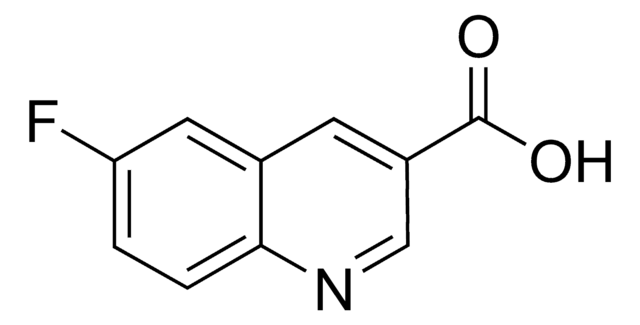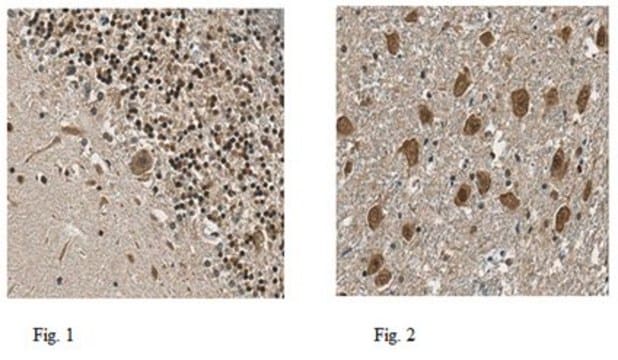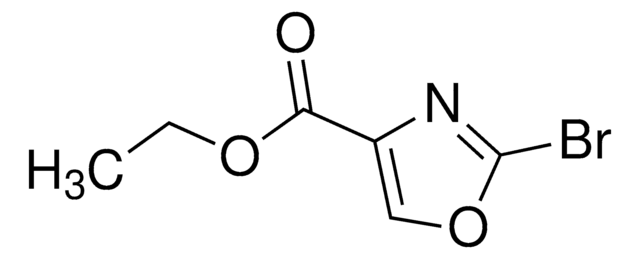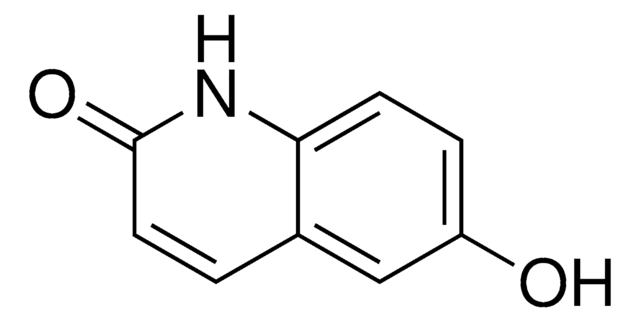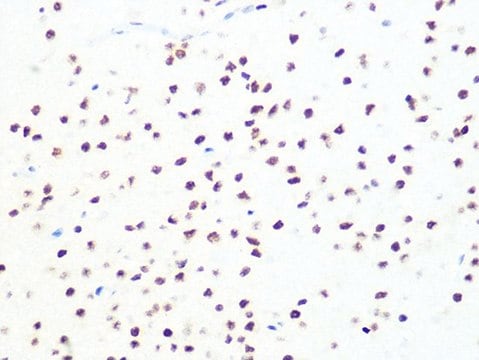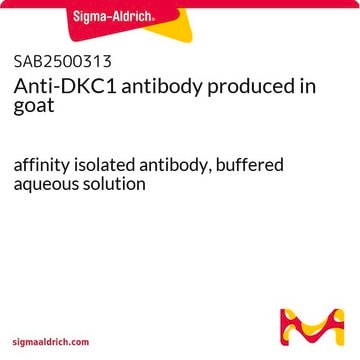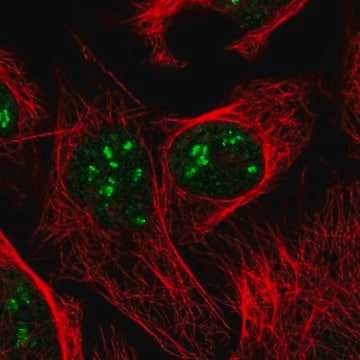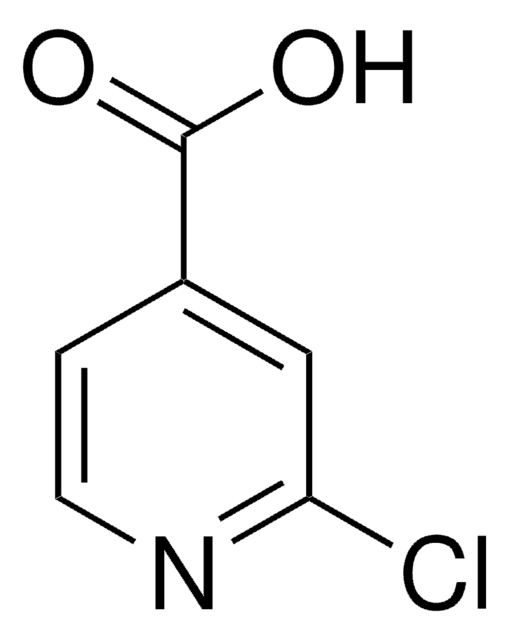ABE2587M
Anti-Dyskerin (Rabbit)
from rabbit, purified by affinity chromatography
Synonim(y):
H/ACA ribonucleoprotein complex subunit 4, CBF5 homolog, Nopp140-associated protein of 57 kDa, Nucleolar protein NAP57, Nucleolar protein family A member 4, snoRNP protein DKC1
Wybierz wielkość
Wybierz wielkość
About This Item
Polecane produkty
pochodzenie biologiczne
rabbit
Poziom jakości
forma przeciwciała
affinity isolated antibody
rodzaj przeciwciała
primary antibodies
klon
polyclonal
oczyszczone przez
affinity chromatography
reaktywność gatunkowa
human
opakowanie
antibody small pack of 25 μL
metody
immunofluorescence: suitable
immunoprecipitation (IP): suitable
western blot: suitable
izotyp
IgG
numer dostępu UniProt
docelowa modyfikacja potranslacyjna
unmodified
informacje o genach
human ... DKC1(1736)
Powiązane kategorie
Opis ogólny
Specyficzność
Immunogen
Zastosowanie
Epigenetics & Nuclear Function
Immunoprecipitation Analysis: A representative lot recovered Dyskerin associated with active telomerase in telomerase-overexpressing HEK293T cells (Courtesy of the laboratories of Dr. Hilda Pickett and Dr. Tracy Bryan, Children s Medical Research Institute, Australia).
Western Blotting Analysis: A representative lot detected Dyskerin in Western Blotting applications (O′Brien, R., et. al. (2016). Cancer Res. 76(12):3604-17).
Western Blotting Analysis: A representative lot detected Dyskerin in mid-S phase HEK293T cells. The signal depleted upon treatment with siRNA against Dyskerin. (Moye, A.L., et. al. (2015). Nat Commun. 6:7643).
Immunofluorescence Analysis: A representative lot detected Dyskerin in HeLa cells. (telomerase positive) (Courtesy of the laboratories of Dr. Hilda Pickett and Dr. Tracy Bryan, Children s Medical Research Institute, Australia).
Western Blotting Analysis: A representative lot detected Dyskerin in HEK293 Cell lysate. The signal was depleted upon treatment with siRNA against Dyskerin (Courtesy of the laboratories of Dr. Hilda Pickett and Dr. Tracy Bryan, Children s Medical Research Institute, Australia).
Jakość
Western Blotting Analysis: A 1:500 dilution of this antibody detected Dyskerin in 10 µg of SW480 cell lysate.
Opis wartości docelowych
Postać fizyczna
Przechowywanie i stabilność
Inne uwagi
Oświadczenie o zrzeczeniu się odpowiedzialności
Nie możesz znaleźć właściwego produktu?
Wypróbuj nasz Narzędzie selektora produktów.
Kod klasy składowania
12 - Non Combustible Liquids
Klasa zagrożenia wodnego (WGK)
nwg
Temperatura zapłonu (°F)
Not applicable
Temperatura zapłonu (°C)
Not applicable
Certyfikaty analizy (CoA)
Poszukaj Certyfikaty analizy (CoA), wpisując numer partii/serii produktów. Numery serii i partii można znaleźć na etykiecie produktu po słowach „seria” lub „partia”.
Masz już ten produkt?
Dokumenty związane z niedawno zakupionymi produktami zostały zamieszczone w Bibliotece dokumentów.
Active Filters
Nasz zespół naukowców ma doświadczenie we wszystkich obszarach badań, w tym w naukach przyrodniczych, materiałoznawstwie, syntezie chemicznej, chromatografii, analityce i wielu innych dziedzinach.
Skontaktuj się z zespołem ds. pomocy technicznej